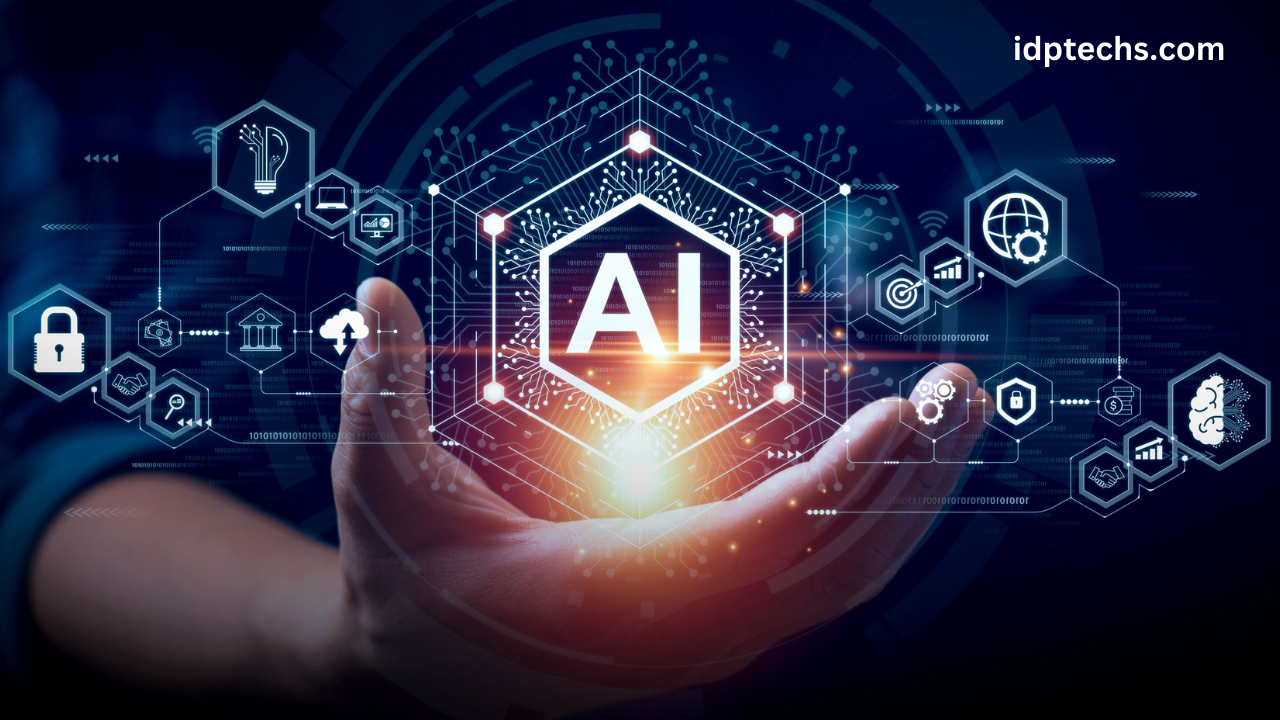Artificial Intelligence (AI) has evolved from a science fantasy idea to a crucial role in our contemporary civilization. In the fast evolving world today, Machine Learning (AI) has become a powerful transition force. This state-of-the-art technology is changing many key aspects of our life and changing industries.
Artificial intelligence (AI) is changing the way we do tasks and make choices in sectors including banking, healthcare, and transportation. First, then, what specifically is driving machine learning’s growing significance in the modern world?
The meaning, advantages, and implications of machine learning for the future of the world will all be covered in this article. Given the speed at which AI is developing, it is critical that consumers and businesses easily relate its implications and promise.
Artificial intelligence: what is it?
The ability of technology, particularly computer systems, to mimic human intelligence processes is known as artificial intelligence. These processes include perception, language comprehension, learning, reasoning, and problem-solving.
There are two types of artificial intelligence: global AI and narrow AI. While general AI refers to robots that are able to perform any writing activities that a human being can, narrow AI is made to do a highly specialised function, such as recommendation systems or virtual assistants.
How Does Artificial Intelligence Work?
Artificial intelligence is essentially based on data and algorithms. Large datasets are used to teach machines to recognize trends, determine factors, and gradually enhance their performance. Machine learning (ML), a branch of Artificial intelligence, is the term for this process.
By using analytical tools, machine learning allows computers to “learn” from data and prior experiences without needing to be explicitly programmed for each task. A more advanced kind of machine learning called “deep learning” recreates how the human brain works by using artificial neural networks.
You will also like:
What is Supervised Machine Learning? The Backbone of AI
The Benefits of Artificial Intelligence
The impact of Machine Learning on society is profound. Among its main advantages are:
- Improved productivity: AI systems may automate highly repetitive jobs, freeing up human labor for more complicated and creative projects. Across all industries, this leads to higher operational efficiency and production.
- Cost Reduction: AI helping companies save money by automating processes and lowering the demand for manual labor. Additionally, it increases accuracy and reduces mistakes that could result in costly errors.
- Advances in Healthcare: Machine Learning is fundamentally changing medication research, diagnostic tests, and treatment planning in the healthcare industry.
- Transportation Advancement: Autonomous vehicles ai – Powered are starting to actuallyhappen. These self-driving cars are expected to enable mobility for anyone with disabilities, reduce crash rates, and improve traffic flow.
Artificial Intelligence’s Difficulties and Issues
Despite all of its benefits, Machine Learning has drawbacks and raises ethical questions. Technology job displacement is a significant problem, especially in manual workers industries. There are also serious ethical concerns about the potential abuse of AI for dangerous or spying objectives.
Data privacy is another issue. Large data sets are necessary for AI systems to continue operating, and if this data is not adequately controlled, this might be misused and violate people’s right to privacy.
Future of Artificial Intelligence
Machine Learning is optimistic, as ongoing developments suggest even greater transformative shifts ahead. AI is anticipated to evolve into a more seamless aspect of everyday living, with personal assistants becoming increasingly intuitive and AI-powered research that speeds up scientific breakthroughs.
As AI technology develops, its capacity to manage intricate tasks will grow, rendering it an essential resource for various sectors.
Frequently Asked Questions (FAQs)
- Artificial intelligence: what is it?
Artificial intelligence is the process of emulating human intelligence in machines so that they’ll do tasks like issue and decision-making that often require human input.
- How does Machine Learning work?
Through the application of machine learning techniques and artificial intelligence (AI), systems can learn from data and progressively get better until they can act independently.
- What are the Economic advantages of Artificial Intelligence?
Higher efficiency, considerable cost savings, wise decisions, individualized experiences, improvements in healthcare, and developments in transportation technology are just a few of the many enormous advantages that AI offers.

